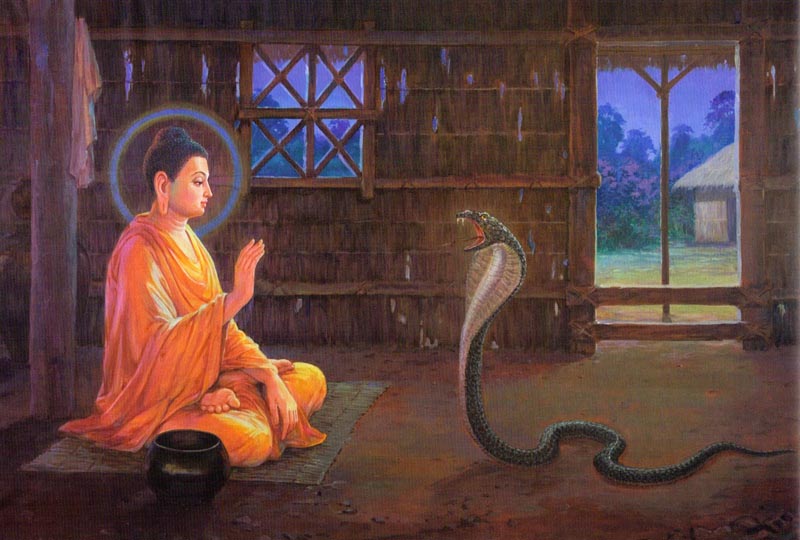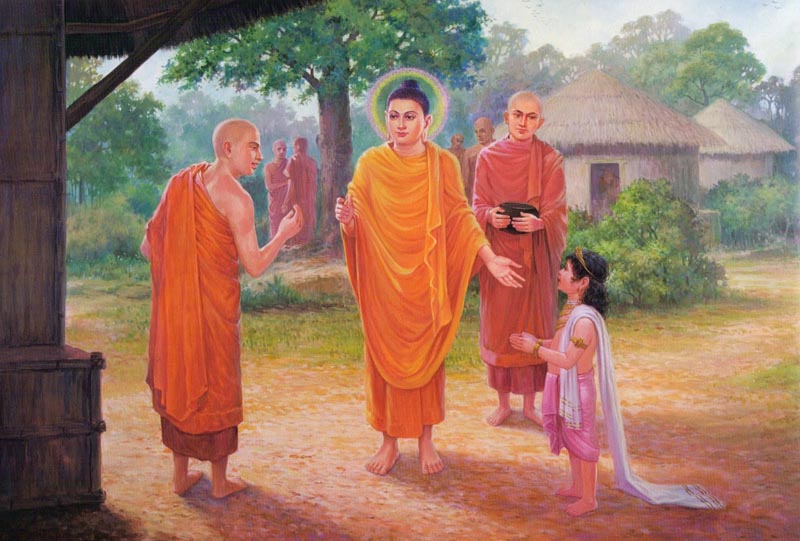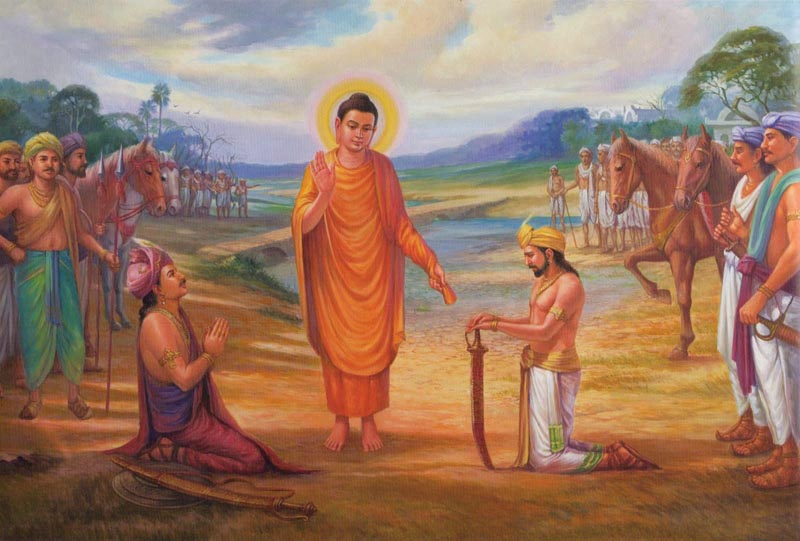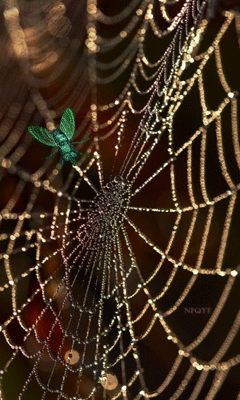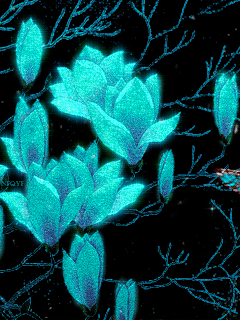-
Comment July 24, 2015
-
Make a list
Comment July 24, 2015 -
In this world…
Comment July 24, 2015 -
Kitty taking a bath
Comment July 24, 2015Do cats really hate water? Cats’ aversion to water is widely accepted as fact — but in truth, not all cats feel the same about taking a dip. If a cat’s experiences with water are mainly exposure to a sopping rainstorm, a forced bath or being sprayed with water as a disciplinary measure, why wouldn’t she shy away from water? Scientists contend that cats’ dislike of water comes from house cats’ owners shielding them from the elements since the earliest periods of domestication and from their ancestors — wild cats in Europe, Africa and China’s desert cat — whose limited experience with water did not require adapting and evolving to deal with it. Lions and leopards avoid river-dwelling predators (like crocodiles) by staying away from water.
On the other hand, some big cats in the wild, especially those in hot, arid areas, regularly swim and bathe to stay cool or catch dinner. The Asian fishing cat is a skilled swimmer, with partially webbed paws, that dives to nab its prey. Source: AnimalPlanet
-
Escape
Comment July 23, 2015by Ajahn Sumedho
Reflections on Cittanusatipatthana, the third Foundation of Mindfulness, given by Luang Por Sumedho during a retreat at Amaravati in September, 1997
A few words on cittanupassana-satipatthana – mindfulness of the state of mind (the mood): with this, I’ve found it very helpful to ask myself and to contemplate what mood I am in, because it’s easy to be living life mechanically. We can be so wrapped up in our habits and reactions that we don’t fully know the mood. There was one time when somebody told me I was angry, and I denied it; actually I was angry, and I didn’t even know – I couldn’t admit it to myself. But it’s only in admitting these things to ourselves that we can resolve them.
The energies and emotions that we have can be frightening, even to oneself. My character is one that wants to have a nice life where everybody is smiling and saying: ‘Everything’s OK’ – even if it isn’t! Life can be lived on that level: not daring to bring up or to admit, let alone to contemplate, the way things are – because we feel so threatened or frightened, and a part of us doesn’t really want to know. We don’t feel we can take it; we don’t know or understand ourselves in a way that allows us to deal with what we think are bad habits or personal problems.
I think there’s also a fear of insanity, or that there might be something basically wrong with us: ‘Maybe there’s a screw loose, or I’ve missed out on something when I was born’ – because when we look at ourselves, we don’t really understand why we are this way. Often, at least in my generation when I was young, men never admitted things – we played roles, we acted out the macho style: ‘Nothing frightens me, I’m not afraid of anything.’ We gave the appearance of being invincible and tough. In the Navy, I remember being on a ship where everybody was playing this role – but, actually, I felt very different: ‘We’re all saying we’re tough, but I’m really scared to death. I must be the only one on the ship who feels this way – but I don’t want them to know that, because I don’t know what they’ll do to me if they find out!’ Nowadays I think people are more willing to admit to each other, and to themselves: ‘I’m frightened’, or, ‘I do have these desires’, or, ‘I do feel angry,’ or whatever.
I was someone who really couldn’t bear to feel confused, so I always wanted to have a certification of things: ‘Tell me what to do, how do you do this?’ I wanted to know exactly, and to have everything neatly arranged so that I’d feel secure; then if I didn’t, there would be this uncertainty or confusion – which I’d resist, I’d always try to get rid of it. But what I’d suggest now is that when you do feel uncertain or insecure or confused by anything, you take the opportunity to contemplate the feeling. Look inward, and ask: ‘What is it like?…’ ‘There’s this confusion right now. I don’t know what to do, or what’s going on. Am I right or wrong? Should I or shouldn’t I?’ Then listen, and just observe that mood as an object of mind – without judging it – and see what happens.
We can bring up a mood of doubt to stop the thinking mind, using a question like, ‘Who am I?’ (or any question that will bring up a state of doubt). We can be aware of that gap in the mind where there’s no thought; we actually use the space between thoughts. So with a doubting nature, we can use that doubt as a skilful means to develop the ability to know not knowing; we see that, ‘It’s like this: “Don’t know…”‘
The thinking mind stops. We can use deliberate thinking also, noticing the space between the words. For example: ‘I am a human being.’ Before thinking it, there’s a pause, then ‘I,’ and there’s a gap, ‘am’ another gap, ‘a’ – gap – ‘human’ – gap – ‘being’ – finished. Nothing. So we get used to noticing and paying attention to nothing, to a gap, to where the thinking mind is not there. This helps in developing connected mindfulness, in which mindfulness isn’t just being aware of things or sensations, but also being aware of no-thing, and of the background – the emptiness, the space, the silence. We have to awaken to notice that because the mind is not conditioned to noticing it, even though it’s obvious. It’s here and now – we’re not making it up – and we can suddenly notice, and awaken to the way it is.
So, in terms of the mood, I can contemplate: ‘What kind of mood am I in?’ I can go into the body and see if there’s anxiety, or if I feel dissatisfied or ill at ease; or if I feel happy or very positive – whatever. Whatever the mood – the kind of internal atmosphere – I can be aware of that as an object that I can observe. Then, once we really get used to observing the mood we’re no longer just a victim of it; we no longer resist or indulge in what we’re experiencing.
Knowing what state of mind you’re in – the way it is, in terms of its quality, is actually a Foundation of Mindfulness. Normally, we try to manipulate and change the moods, or think positively to make ourselves feel better – there doesn’t seem to be any escape from the condition. But the religious goal is the escape. There is an escape from suffering – from the conditioned, the born, the created and the originated. To paraphrase the Buddha: ‘There is the Unborn, Uncreated, Unoriginated. If there was not the Unborn, Uncreated, Unoriginated, there would be no escape from the born, the created, the originated. But because there is the Unborn, the Uncreated, the Unoriginated, therefore there is an escape from the created, the born, the originated.’
This kind of escape is encouraged: to free oneself from being bound and caught up in the deathbound state. We call it ‘deathbound’ because, when you really contemplate it, everything in these khandas: the thoughts, memories, feelings, the body – is going to die, to cease. So if you’re attached to the five khandhas – and that’s all there is – actually, you’re attached to death. Although people think they’re attached to life when they’re fascinated by and attached to the conditioned realm, really they are attaching to death. They may say they love life, but isn’t what they consider to be life just a part of a bigger picture that is not admitted into full consciousness?
There’s always this kind of fairytale, or naive hope, that the fulfilment of desire will be the answer to our suffering: if we meet the perfect person, then we’ll live happily ever after; or, once we get lots of money then we’ll be really happy; or, once we get everything we desire, we won’t have any more desires. But consider: people who seem to have everything – how OK are they? Is it worth spending your life trying to fulfil all your desires? It doesn’t take much reflection to see that it’s a bit of a waste – because as long as desire is your attachment, your delusion, it will always perpetuate itself. You may get momentary gratification but that’s about the best you can expect. You get what you want, and for that moment you feel gratified but then it starts again, you’re looking for something else – and it goes on and on and on. This is because the basic problem is the identification with, and attachment to, desire.
But our true nature isn’t that; it isn’t desire, it isn’t death. There is the Unconditioned, Unborn, Uncreated, Unoriginated: Amaravati – the Deathless Realm, which is timeless, apparent here and now. So what can that be in terms of experience, now? If we practise in order to improve ourselves or to get something in the future that will always take us to suffering. In meditation, no matter how much you strive and work to be disciplined, how many hours a day you sit, if you still operate from this basic delusion you end up with suffering as a result.
You can’t get enlightenment through ignorance. The way to realise, or to be enlightened, is to awaken to the present – to trust in the ability to listen, to be in a state of simple awareness. This may be difficult to sustain, because we are programmed for passions – for going up and down the scale of greed, hatred and delusion in all its variations. However, there is that which is aware of the passions, that can be established through mindfulness – of body, feelings, mind states and mental phenomena. Mindfulness and reflection on the five khandhas allows us to change our attitude towards them, rather than always seeing them as ‘me and mine.’
So the constant requirement in all these experiences is mindfulness. We notice the arising of a condition, like an inhalation: it begins, reaches a peak, and then the exhalation begins, and then ends. Similarly, you can be aware of the mood as changing; when you are patient enough and willing to sustain attention, a mood is definitely impermanent – it isn’t a solid block. If we don’t recognise our moods in this way, we’re always either indulging in them or resisting them, and they have a great influence on how we experience life. But as soon as I awaken and pay attention, my relationship to conditions changes. Instead of being deluded by the conditioned realm, I observe it. There is the state of knowing, of being aware of the changingness of conditioned phenomena, behind which there is the Unconditioned. With intuitive awareness, we find that silence, the unconditioned, as an embracing background, within which the conditions are in perspective. They are the way they are, they’re like this: but then they end, they cease.
On the personal level I can feel afraid: even to think of Enlightenment or realising the Deathless could be seen as an over-estimation or delusion. Sometimes we prefer to think of ourselves in negative terms because we think that by being humble and admitting our faults we are being honest. But in fact we have to let go of that luxury of seeing ourselves as a damaged person, or a helpless victim of circumstances: ‘My mother never loved me – that’s why I am the way I am,’ ‘I never had the opportunities that you’ve had’, or whatever. I’m not trying to make fun of that but I’m pointing out that if we’re attached to those roles, then we will always experience life in that way. But there is an escape; there is a release from the suffering of delusion and from the power of that conditioning.
We might think: ‘Well, the Buddha did it, but that was over two thousand five hundred years ago, and it’s only hearsay. I didn’t know Gotama the Buddha, so maybe they just made it up – maybe there wasn’t any Gotama the Buddha.’ But if you practise and develop mindfulness, it doesn’t matter whether the Buddha ever existed – because the teaching works. We’re not demanding historical accuracy, but: does it work? Is there an escape from suffering? Do you know when suffering is there? Do you know when there is no suffering? Continue reading
-
That too much
Comment July 22, 2015 -
Every up and down
Comment July 22, 2015 -
Kitty loves little duckling so much
Comment July 22, 2015The duck’s mouth is called a “bill”. Normally, it is broad and flat
and has rows of fine notches along the edge called “lamellae”.
The lamellae helps the duck to grip its food so that it will not
slip off. However, ducks bills come in different shapes and sizes.
The shape of the bill and body features will determine how the duck
hunt for its food. Source: Kittyhouse -
Cherish every moment
Comment July 22, 2015 -
Life goes on and on
Comment July 22, 2015Day by day, life goes on and on. Every split of seconds your heart beats, beats! for another day or for another moments like today. Every split of seconds, life goes on and on like everyday, like in today’s reality the world may look fairer to us all, but not a single human-being living a perfect life. Like today, like tomorrow, life goes on and on with you or without you because everyday is just another day, so live it whiles you can because no one lives forever. ~Wazim Shaw






